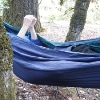The Brain Damage We Have Incurred
-
DaveMunson
- Posts: 266
- Joined: Thu Jun 23, 2005 8:36 pm
Re: The Brain Damage We Have Incurred
Thanks Rooster. Some one had asked me about a list of everything that Apnea causes but I had forgotten about the brain damage.
Re: The Brain Damage We Have Incurred
As JohnBFisher pointed out, better health can lead to a reduction of a particular sort of stress, and that, in turn, can help us to reconnect with he past.TSSleepy wrote:My memory had gotten really bad. At 41, I had no vivid memories earlier than my 20's and only a few "echoes" of major events that had been repeated in my mind over and over. Even huge chunks of my 20's and 30's were a blur.
But now, after 11 months on APAP. My memory has definitely improved. And I'm starting to recapture some of my past. Something will spark an association and I'll remember some little thing of event from my childhood.
It's almost like sleep apnea was a flood that wiped out all the bridges and roads to these old memories, but not the memories themselves. Now the water has receded and I'm slowly discovering new paths to old memories. It's been a huge comfort.
But it helps us connect with the present and the future too, because being healthier helps a person reconnect to life itself, in some ways. When one is in the midst of a health emergency, the brain understandably assumes that it has little need to dwell on the times before the emergency. And sleep apnea, for many of us, was a major health emergency that was having an effect on all our systems, not just our brains.
No one can discount the importance of breathing and sleep in human life. Without them, nothing is right. With them, everything, and I do mean everything, gets better.
For me, it is that simple.
- JohnBFisher
- Posts: 3821
- Joined: Wed Oct 14, 2009 6:33 am
Re: The Brain Damage We Have Incurred
Rooster you recounted your own experience of dealing with others:
I remember just starting in a job and thinking that a co-worker in this late 50s could not possibly be able to keep up with us dealing with all this fancy technology. At least that was until he showed me a simple approach to a very complex problem. I learned quite quickly it's not age that determines ability to think clearly and effectively. It's not IQ. It's the USE of the gray matter that develops the habit of thinking clearly and effectively. That habit makes it easier to solve problems and face unique challenges.
http://www.emedicinehealth.com/sleeples ... cle_em.htm
A wise approach. Even for those of us past our youth, it's wise to discuss situations with others. Perspective helps, as you mentor clearly demonstrated. And as usual your post and humor helps all of us learn!Rooster wrote:... I remember as a youngster getting started in business. One morning an age 56 sales manager, named Bill, and I had a loud clash. I asked a mentor to join me for lunch to discuss the incident. ...
I remember just starting in a job and thinking that a co-worker in this late 50s could not possibly be able to keep up with us dealing with all this fancy technology. At least that was until he showed me a simple approach to a very complex problem. I learned quite quickly it's not age that determines ability to think clearly and effectively. It's not IQ. It's the USE of the gray matter that develops the habit of thinking clearly and effectively. That habit makes it easier to solve problems and face unique challenges.
Hey! I resmeble that remark!Komodo wrote:I forgot what I was going to post!
Glad that xPAP therapy helped improve that. Of course, the very way we store and recall memory means that early memories are often lost to our reach. Instead of some photographic recording, we actually CHANGE our memory every time we access it. Do we suddenly remember an odd memory when we see some odd association? If that happens often enough, those become linked in our memory. That is how neural networks work. Some people do remember their childhoods much better than others. But often their memories (after all those years) are quite suspect. And if you ever hear someone who testifies based on "recovered memory", be VERY, VERY cautious about accepting it as fact. There is STRONG evidence that most recovered memories are simply false fabrications created during the process of trying to remember an event.TSSleepy wrote:... My memory had gotten really bad. At 41, I had no vivid memories earlier than my 20's and only a few "echoes" of major events that had been repeated in my mind over and over. Even huge chunks of my 20's and 30's were a blur. ...
Additionally, if you are interested, there is LOTS of information about circadian rhythm disorders. For example at the following URL, you will find a list of symptoms. The URL is:jnk wrote:... No one can discount the importance of breathing and sleep in human life. Without them, nothing is right. With them, everything, and I do mean everything, gets better. ...
http://www.emedicinehealth.com/sleeples ... cle_em.htm
It's fun to learn new things, isn't it?Symptoms commonly found in persons with a circadian rhythm disorder related to the sleep-wake cycle can include the following:
- Difficulty initiating sleep
- Difficulty maintaining sleep
- Nonrestorative sleep
- Daytime sleepiness
- Poor concentration
- Impaired performance, including a decrease in cognitive skills
- Poor psychomotor coordination
- Headaches
- Gastrointestinal distress
_________________
| Mask: Quattro™ FX Full Face CPAP Mask with Headgear |
| Additional Comments: User of xPAP therapy for over 20 yrs. Resmed & Respironics ASV units with EEP=9cm-14cm H2O; PSmin=4cm H2O; PSmax=15cm H2O; Max=25cm H2O |
"I get up. I walk. I fall down. Meanwhile, I keep dancing” from Rabbi Hillel
"I wish to paint in such a manner as if I were photographing dreams." from Zdzisław Beksiński
"I wish to paint in such a manner as if I were photographing dreams." from Zdzisław Beksiński
Re: The Brain Damage We Have Incurred
IMO, all of the studies on aging and mental ability are suspect. Not a single one of them controls for SDB. Believing SDB is highly prevalent in our society, I bet studies controlling for SDB would yield some very interesting results. It would not surprise me to learn that people with open airways and no other major health problems maintain a very high ability throughout life. The studies done so far have all the people with years of damage from SDB lumped into the statistics.JohnBFisher wrote:
What other things can contribute? Well, what about age. Sorry, but even at 30 you can start to notice changes in your ability to concentrate, to remember, to learn new languages, to recall words, etc.
At any rate, let me draw everyone's attention to David Brooks' article this week.
Brooks discusses some fascinating implications in the rest of the article: http://www.nytimes.com/2010/02/02/opini ... l?emc=eta1Over the past few years, researchers have found that the brain is capable of creating new connections and even new neurons all through life. While some mental processes — like working memory and the ability to quickly solve math problems — clearly deteriorate, others do not. Older people retain their ability to remember emotionally nuanced events. They are able to integrate memories from their left and right hemispheres. Their brains reorganize to help compensate for the effects of aging.
A series of longitudinal studies, begun decades ago, are producing a rosier portrait of life after retirement. These studies don’t portray old age as surrender or even serenity. They portray it as a period of development — and they’re not even talking about über-oldsters jumping out of airplanes.
Rooster
I have a vision that we will figure out an easy way to ensure that children develop wide, deep, healthy and attractive jaws and then obstructive sleep apnea becomes an obscure bit of history.https://www.youtube.com/watch?v=0ycw4uaX ... re=related
I have a vision that we will figure out an easy way to ensure that children develop wide, deep, healthy and attractive jaws and then obstructive sleep apnea becomes an obscure bit of history.https://www.youtube.com/watch?v=0ycw4uaX ... re=related
- Captain_Midnight
- Posts: 761
- Joined: Sat Jan 28, 2006 8:10 pm
- Location: The Great State of Idaho
Re: The Brain Damage We Have Incurred
.
From the UCLA study...The process also incites inflammation, which further damages the tissue.
And inflammation is treatable. With xPAP, for example. Anti-inflammatory dietary supplements might be useful for some apneic patients as well, such fish oil, vitamin d, magnesium, etc. (This is not a recommendation, do your dd before taking supplements.)
As with RG, my OSA was likely continuous for nearly 50 yrs. My memory had progressively deteriorated, and was affecting my work as a scientist. Now, with xpappian therapy, I can recall things (important and truly trivial) with the facility that I'm not sure that I ever had. What I can't remember are the things that I had trouble concentrating on before. If the OSA fog prevented me from learning or understanding something to any degree of depth before, I'm surely not going to remember it now.
My point? I believe that most apneics can recover much of their brain function and memory with successful OSA treatment.
Good topic Rooster!
.
From the UCLA study...The process also incites inflammation, which further damages the tissue.
And inflammation is treatable. With xPAP, for example. Anti-inflammatory dietary supplements might be useful for some apneic patients as well, such fish oil, vitamin d, magnesium, etc. (This is not a recommendation, do your dd before taking supplements.)
As with RG, my OSA was likely continuous for nearly 50 yrs. My memory had progressively deteriorated, and was affecting my work as a scientist. Now, with xpappian therapy, I can recall things (important and truly trivial) with the facility that I'm not sure that I ever had. What I can't remember are the things that I had trouble concentrating on before. If the OSA fog prevented me from learning or understanding something to any degree of depth before, I'm surely not going to remember it now.
My point? I believe that most apneics can recover much of their brain function and memory with successful OSA treatment.
Good topic Rooster!
.
_________________
| Machine: DreamStation Auto CPAP Machine |
| Mask: ComfortGel Blue Nasal CPAP Mask with Headgear |
| Additional Comments: APAP range = 10 - 12.5 In H20 |
-
Autopapdude
- Posts: 615
- Joined: Tue Oct 06, 2009 7:49 am
Re: The Brain Damage We Have Incurred
drain bamage? I haven't had any drain bamage.
- Scarlet834
- Posts: 310
- Joined: Sun Sep 06, 2009 12:24 pm
- Location: California
Re: The Brain Damage We Have Incurred
LOL!Autopapdude wrote:drain bamage? I haven't had any drain bamage.
I have found myself more and more typing or speaking words other than what I meant to, where that never would have happened in earlier years. Don't know if its the apnea or if my poor brain cells finally reached capacity. But, I'm still here, I'm still gainfully employed, and I'm doing my best. So, what else is there but to enjoy and go on. Thanks for the chuckle!













